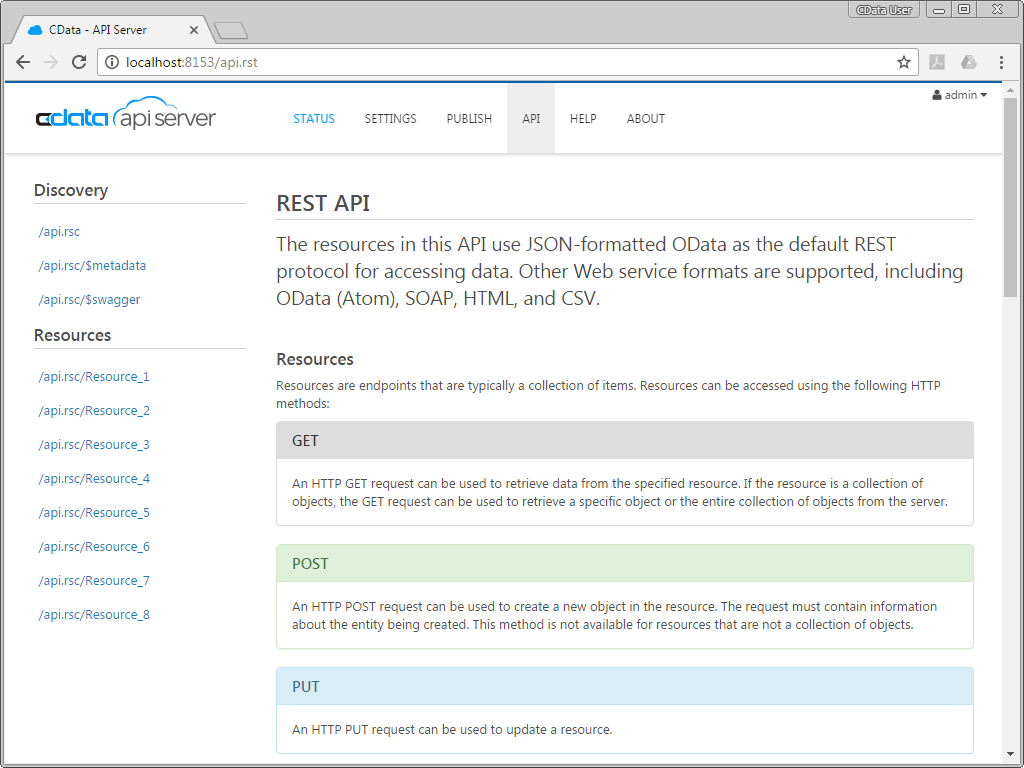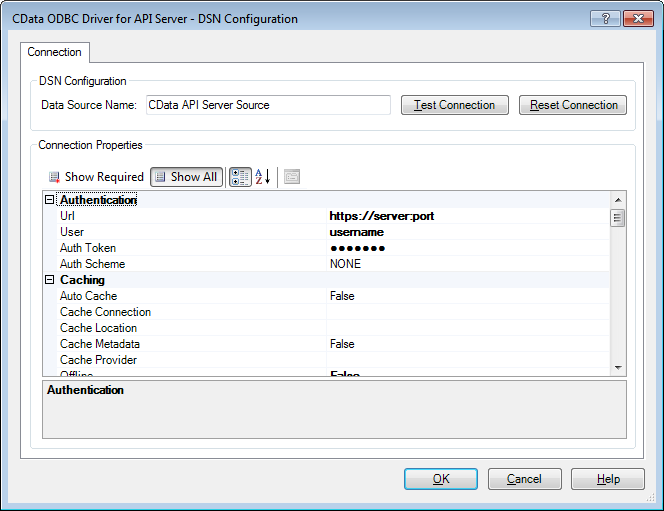Discover how a bimodal integration strategy can address the major data management challenges facing your organization today.
Get the Report →API Server Overview
The API Server is an installed application that allows you to expose on-premises and cloud-based data through custom REST APIs. This article provides a detailed overview of the API Server, its functionality, and its features.
Contents
- What does the API Server do?
- What does an API from the API Server look like?
- Supported OData Features
- Beyond OData: API Server Drivers
- How do I get started?
What does the API Server do?
The API Server allows you to build a uniform API for your disparate data sources. Using simple point-and-click interfaces, you can configure connections to, and quickly build a REST API for, leading RDBMS, popular file formats (CSV/TSV, JSON, etc.), other on-premises sources (QuickBooks, MS Excel, MS Access, etc.), NoSQL sources, and SaaS sources. Since the API Server is installed directly on your server, you can easily provide local and remote access to the API.

What does an API from the API Server look like?
The API Server generates APIs using the OData protocol by default, which are immediately consumable by many popular BI, reporting, and ETL tools, along with most common development frameworks and libraries. Once you configure a connection and add resources to the API Server, you can simply send HTTP requests to read and write data. For major BI, reporting, and ETL tools that natively support OData, this process is managed in the background. If you are performing the requests programmatically, you can refer to the API page of the API Server to see the list of available endpoints and their corresponding HTTP methods.

The API Server automatically creates endpoints for discovering the list of available resources and the metadata for the resources, as well as a Swagger endpoint to allow Swagger-capable tools and libraries to integrate seamlessly. For each resource added for your configured connections, you get a separate endpoint which can be used to read and write data, as allowed by the base data source. For example, if you configure a connection to Salesforce, you can work with the Account information from Salesforce by passing different HTTP requests to a URL similar to: http://address:port/api.rsc/Salesforce_Account
Supported OData Features
The API Server provides complete support for the following standard OData 4.0 URL parameters:
- $filter
- $expand
- $select
- $search
- $orderby
- $top
- $skip
- $inlinecount
- $count
- $format
The API Server translates the received OData requests to the native protocol or API for the base data source, processes the response, and returns the data. For more information on the usage of these parameters, refer to the online Help documentation, accessible from the API Server page.
Beyond OData: API Server Drivers
For those tools and applications that cannot communicate directly using the OData protocol, CData Software offers a suite of standards-based drivers that allow you to connect to data through the API Server, whether you are using ADO.NET, JDBC, ODBC, or want to access your data within Microsoft Excel, SSIS, Biztalk, or PowerShell.
With the API Server Drivers, you will simply need to configure your connection to the API Server. Once connected, the API Server Drivers behave like any other standard driver, allowing for schema discovery and supporting full create, read, update, and delete functionality.

How do I get started?
The API Server is currently available for machines running Windows, Mac, and Linux/Unix. Download the API Server and generate a REST API for bi-directional access to live data from popular RDBMS and 80+ other NoSQL and SaaS sources, on-premises and cloud-based.
The API Server Drivers are also available for Windows, Mac, and Linux/Unix, depending on the particular technology you are interested in. Choose the driver that fits your needs and start connecting to the API Server in the apps and environments of your choice today!
You can refer to our Knowledge Base for information on installing the API Server in hosted environments, like Microsoft Azure, Amazon EC2, and Heroku.
As always, our world-class support team is here to help. If you have any questions about the API Server or the API Server Drivers please let us know.






